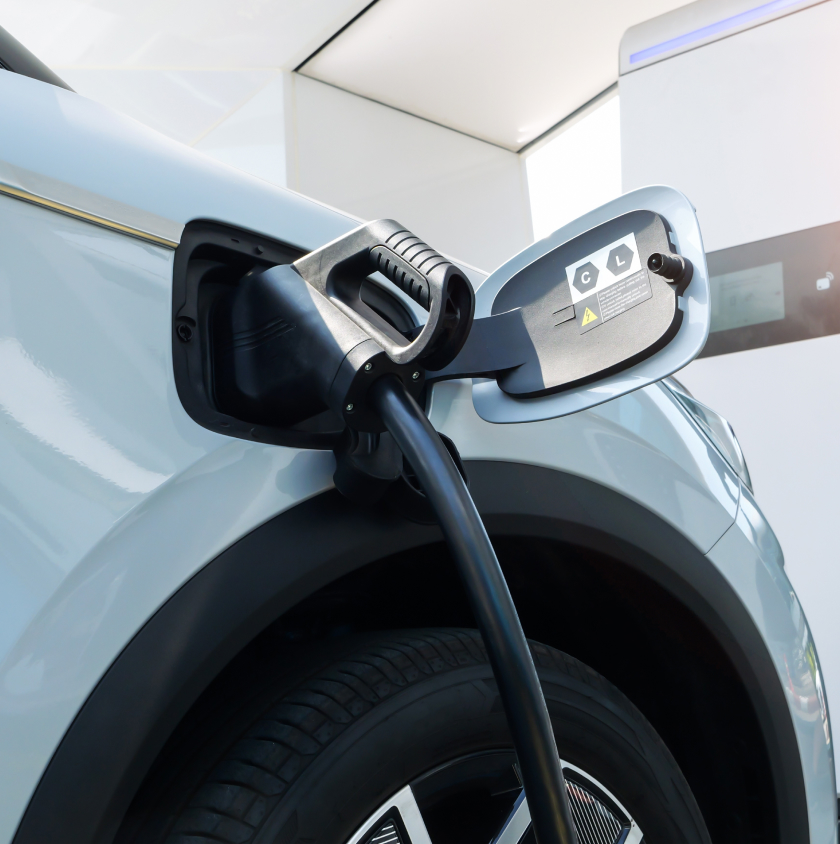
Electric Car Insurance
Compare Electric Car Insurance Quotes
- Compare 120+ insurers
- You could save up to £515*
- Find a great deal today

Compare insurance quotes from the UK’s leading electric car insurers including:
Why Compare Electric Car Insurance at SimplyQuote.co.uk?
SimplyQuote, in partnership with Quotezone, takes the hassle and stress out of comparing multiple electric car insurance quotes. The free, online comparison tool simplifies the process in minutes.
Quickly compare electric car insurance quotes from various first-rate UK insurance providers to get the best deal suited to you, your vehicle and your budget.
Plugging into a new electric car insurance policy hasn’t been easier!
What Do You Need To Get An Electric Car Insurance Quote?
Before you can get a electric vehicle quote, you’ll need to provide some information:
- Your details – name, surname, postcode, average mileage, UK driver’s licence
- A bit of driving information – what are you using the vehicle for (e.g. social, commuting or business)
- Your driving history – license points, no claims history (from previous insurers)
- Your electric vehicle details – registration number, make and model
- Named drivers (including anyone else who will be driving your vehicle)
Why Do You Need To Insure Electric Cars?
It’s a legal requirement in the UK that all drivers have motor vehicle insurance – no matter which type of car engine you have. This means, that if you drive an electric or hybrid car, you’ll need specialist insurance known as electric car insurance to legally drive on UK roads.
Note: If you don’t drive your electric vehicle (and it remains parked in your private driveway or garage), you’ll need Statutory Off Road Insurance (SORN) to remain compliant.
Who can get electric vehicle insurance?
Generally, anyone who drives an electric vehicle can get insurance for it.
- Aged between 18 and 80
- Have a valid UK/EU driver’s license

What Does Electric Car Insurance Cover?
Electric car insurance covers everything a standard car insurance policy would but with a few variations that specifically apply to electric or hybrid engines.
Let’s take a look at what generally is and isn’t covered:
What’s covered
- Accidental damage – comprehensive car insurance covers repair costs to your vehicle or property
- Malicious damage (i.e. vandalism) – most comprehensive car insurance policies cover malicious or criminal damage to your electric vehicles, but there are often limits to the number of times you can claim
- Uninsured driver cover – if you happen to be in an accident with an uninsured driver (and you need to claim from your own insurance for your electric car)
- Public liability cover – protects you against third-party claims should you injure or damage third-party property/vehicle when driving
- Personal possessions cover – depending on the insurer, any personal belongings left in your vehicle (as long as they are out of sight) may be covered
- Europen (EU) cover – standard motor vehicle insurance (with a fully comprehensive plan) generally includes basic third-party cover when driving across the UK border. If you frequently drive outside the UK, you can look at upgrading this level of cover.
What’s not covered
- Damages caused by driving under the influence of drugs or alcohol
- Damage caused by negligence, such as giving your keys to a “valet” driver and they steal your vehicle
- Reckless driving such as speeding or not obeying general traffic rules
- General wear and tear such as brake pads and tyres
For a better understanding, let’s look at the three main cover levels for electric car insurance next.
Looking for electric car insurance? Get your quote today!
Get QuotesWhat Levels Of Electric Car Insurance Can You Get?
There are three main levels of cover (which are the same cover levels for a petrol or diesel car) available:
Third-party only (TPO)
This is the most basic level of cover. It protects you against third-party claims if you injure someone or damage their vehicle/property when you are driving. For instance, you knock over a pedestrian or are in a car accident with oncoming traffic.
Note: Many people assume TPO is the cheapest option. Whilst this used to be the case, comprehensive car insurance now tends to be cheaper as insurers consider drivers who take out third-party-only policies to be a higher risk.
Third-party fire and theft (TPFT)
This is the same as TPO cover with added compensation should your electric or hybrid car be damaged by fire or stolen.
Fully comprehensive
This is the highest level of cover available. It covers both TPO and TPFT levels as well as covering you and your electric car. Most mainstream insurance companies offer key replacement, window screen protection and legal protection in their comprehensive plans, but it’s best to confirm this with your chosen insurer.

What Are The Types Of Electric Car Insurance Available In The UK?
There are various types of insurance policies available for electric cars:
Social
Social, domestic and pleasure policies cover you for any type of driving that is not related to work or business activities. This type of cover means you can use your electric vehicle to drive to the shops, go on holiday, and visit friends and family.
Social and commuting
This type of policy will give you the same cover as a social, domestic and pleasure policy but also covers you for using your electric vehicle to commute to work.
You’ll also be covered to use your car to commute in various other ways such as parking and then getting a train.
Business use
You’ll need to take out a business use policy if you intend to use your electric vehicle to commute to more than one place of work. Business-use policies cover you for a wide range of work-related driving activities depending on which of the three different levels of cover you choose.
So, you’ll need to choose the right cover to make sure you have enough financial protection for how you plan to use your vehicle.
What Add-Ons Are Available For Electric Car Insurance?
Luckily there are optional extras to add to your standard comprehensive car insurance if you wish. These include:
Electric car battery cover (EV boost)
Battery cover means you’re insured for any damage to the battery in your electric car, which can be beneficial as batteries are expensive to repair and replace.
Charging cable cover
This covers the costs of repairing or replacing the charging cable for your vehicle.
Courtesy car cover
This will cover the costs of hiring a courtesy car whilst your electric motorcar is being repaired after an accident. If you’d prefer your courtesy car to be an electric car, make sure you check this is covered under the policy.
Legal cover
This will help cover the costs of any legal expenses you incur if you take another driver to court or are taken to court by another driver. It also covers legal expenses should someone trip over your charging cable and injure themselves.
Electric car breakdown cover
Breakdown cover entitles you to roadside assistance if your car breaks down whilst you’re on the road.
Personal accident cover
Adding personal accident cover to your policy means that your insurer will pay out if you are injured or killed in a car accident.
No-claims bonus cover
No-claims bonus protection means that you pay extra so that your no-claims bonus is protected in the event of an accident. There are several different levels of this cover, so be sure to check which one is right for you.
EU cover
If you frequently travel across the UK border, it might be beneficial to add EU cover if you’re on TPO or TPFT insurance plans. Some insurers may offer this as a standard with fully comprehensive policies, while some may not. It’s best to confirm these details with your chosen motor vehicle insurance provider.
Key replacement
Some insurers may offer key replacement cover to basic TPO and TPFT policies.
How Much Does Electric Car Insurance Cost?
On average, annual electric car insurance costs around £641, whereas standard petrol or diesel car insurance costs about £467 per year
The price of an electric car insurance policy depends on several things such as the make and model of your electric car and the level of cover you choose. Electric cars with higher price tags typically have higher insurance premiums.
What impacts electric car insurance prices?
- Age of the driver (i.e. young driver or over 50)
- Your location
- How secure is your electric car when not in use?
- Vehicle type
- Average mileage
- Claims history
How To Get Cheaper Electric Car Insurance
There are several ways to lower your insurance premiums for electric cars. from comparing multiple quotes to installing telematics technology and securing your vehicle when not in use.
Compare insurance quotes
Before you take out a car insurance policy, you should always compare quotes from different insurers to make sure you get the best deal possible.
Black box policies
A black box policy means that you allow your insurer to fit a telematics device into your car that will send them data about your driving habits. This is so they can monitor how safely and carefully you drive and might lower your insurance premiums accordingly.
Reduce your mileage
If you reduce the amount of time you spend driving, you’ll be less likely to be involved in an accident. Insurers will consider you a “low-risk driver ” and should charge you less for your insurance.
Add named driver(s)
If you add a named driver to your policy, this could lower the cost of your insurance.
Choose the right electric car
Although electric vehicles are more expensive to insure than petrol or diesel cars, you can still reduce the costs by choosing an electric vehicle in a low insurance group. These vehicles are considered to be safer and therefore cheaper to insure.
Only opt for the add-ons you need
While overinsuring your electric vehicle may seem like the ‘logical’ thing to do (to cover all the legal boxes) you must consider if the added cost justifies the extra add-ons. It’s best to only add what you really need.
Voluntary higher excesses
Many insurance providers will give you the option to pay higher excess rates as a way to lower your insurance premiums. However, you must ensure you can pay a higher excess if you’re involved in an accident.
Up your car security
The simplest way to reduce the cost of your car insurance is often to take steps to make your car more secure. This can include parking in a secure garage and fitting alarms, immobilisers or wheel locks.
Opt for annual payments
Opting to pay your electric car insurance annually works out cheaper in the long run than paying monthly instalments. This is because you sidestep monthly interest and inflation charges.
Looking for electric car insurance? Get your quote today!
Get QuotesWhat Are The Benefits Of An Electric Car
There are many benefits of having an electric car insurance policy in place; from lower running costs, paying zero road tax (until April 2025) and quieter engines.
Let’s take a closer look:
- Less environmental impact: Electric cars are zero-emission vehicles, so owning one is a great way of reducing your carbon footprint.
- Lower running costs: It costs far less per mile to power an electric car than it does to fuel petrol and diesel vehicles. This makes electric cars cheaper to run, and charging them is becoming much easier.
- Zero road taxes: Owners of fully electric cars (under £40,000) don’t have to pay any road tax (until 2025), meaning you could save up to £190 a year when you make the switch to electric.
- No congestion zone charges: Driving electric cars in busy cities like London or Bristol have the added benefit of no congestion/clean air charges.
- Free parking: Some local councils offer free parking for electric vehicles.
- Less servicing and repairs: Electric cars require less servicing and repairs than diesel and petrol cars as they have far fewer moving parts, so they tend to have fewer issues.
- Quiet engines: Electric cars make far less noise than cars with petrol and diesel engines, creating less noise pollution.

How To Compare Electric Car Insurance At SimplyQuote.co.uk
Compare electric driver insurance quotes at SimplyQuote.co.uk today:
Fill in the quick questionnaire
Provide information about yourself, the type of electric motorcar you own, and where in the UK you live.
Select your add-ons
Choose any extras you want to add to your policy.
Compare quotes
Compare various electric motor vehicle insurance quotes with SimplyQuote.
See how much you could save
Get the best deal aligned to your budget and needs.
Frequently Asked Questions
Electric car insurance policies are the same as insurance policies for petrol and diesel cars. The main difference is that currently, electric cars are generally more expensive than petrol and diesel cars which means electric car insurance is higher.
Yes, most mainstream insurers offer electric car insurance.
The cheapest electric cars to insure include:
- Renault Zoe Iconic R110
- Hyundai Kona EV Premium 39 kWh
- Mazda MX-30 (100th Anniversary edition)
- Fiat 500 Electric Icon
- Volkswagon ID.3 Business 145
Electric car drivers owning these models can expect higher insurance premiums:
- Tesla Model S Performance AWD
- Ford Mustang Mach-E First Edition 88 kWh AWD
- Audi Q4 e-tron S Line Edition 135
- Mercedes Benz EQC 400 Sport
While electric vehicles have their benefits, there are a few things to consider beforehand, such as:
- Buy/lease electric batteries: Leasing electric car batteries is generally cheaper in the short term and may be available from certain manufacturers. However, there are stipulations to this option and you need to make sure you can cover the monthly installments.
- Electric car range: What is your average mileage? Most electric cars do not have the same mileage range as fuel-tank vehicles. If you drive higher mileage it might be best to opt for a hybrid car instead.
- Charging points: Charging point installations range between £800 and £1,100. This needs to be taken into consideration before opting to go electric. Additionally, ensure there are sufficient charging points along/in the vicinity of your driving routes to prevent the battery from running flat.






